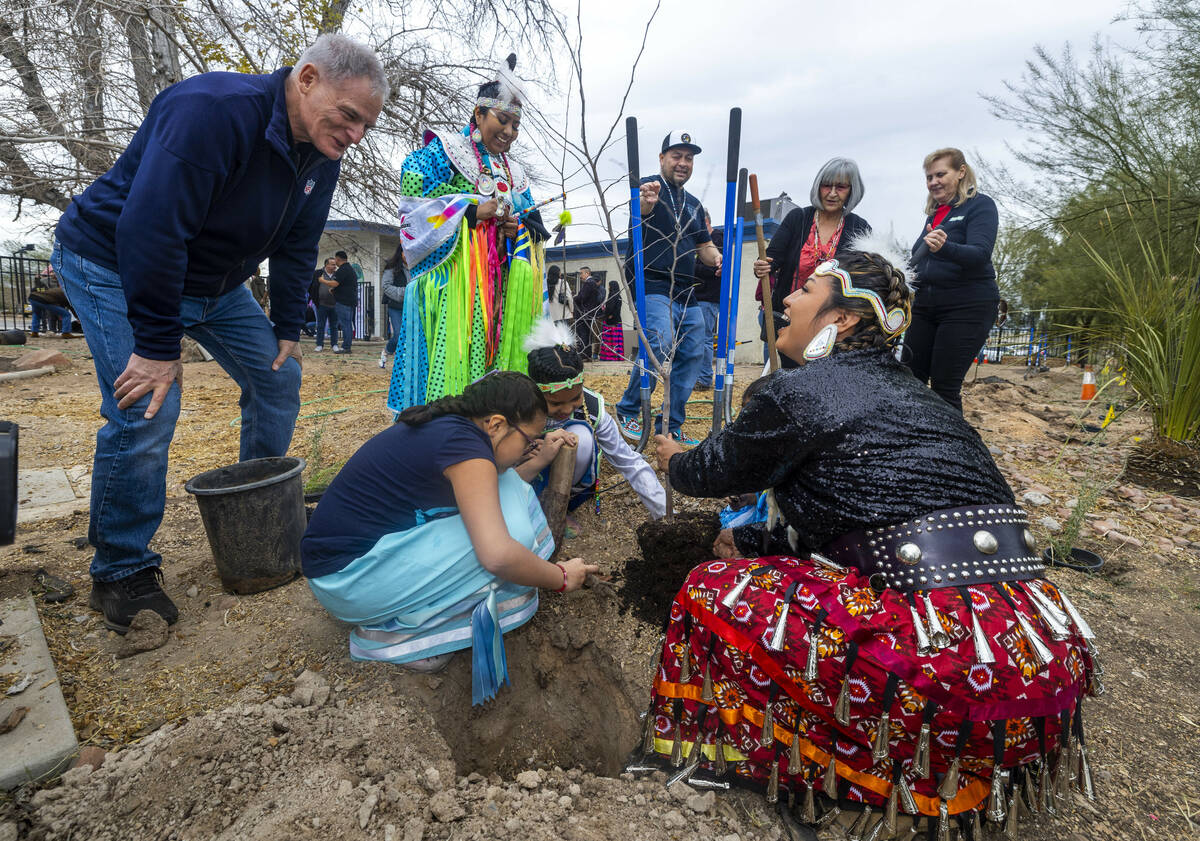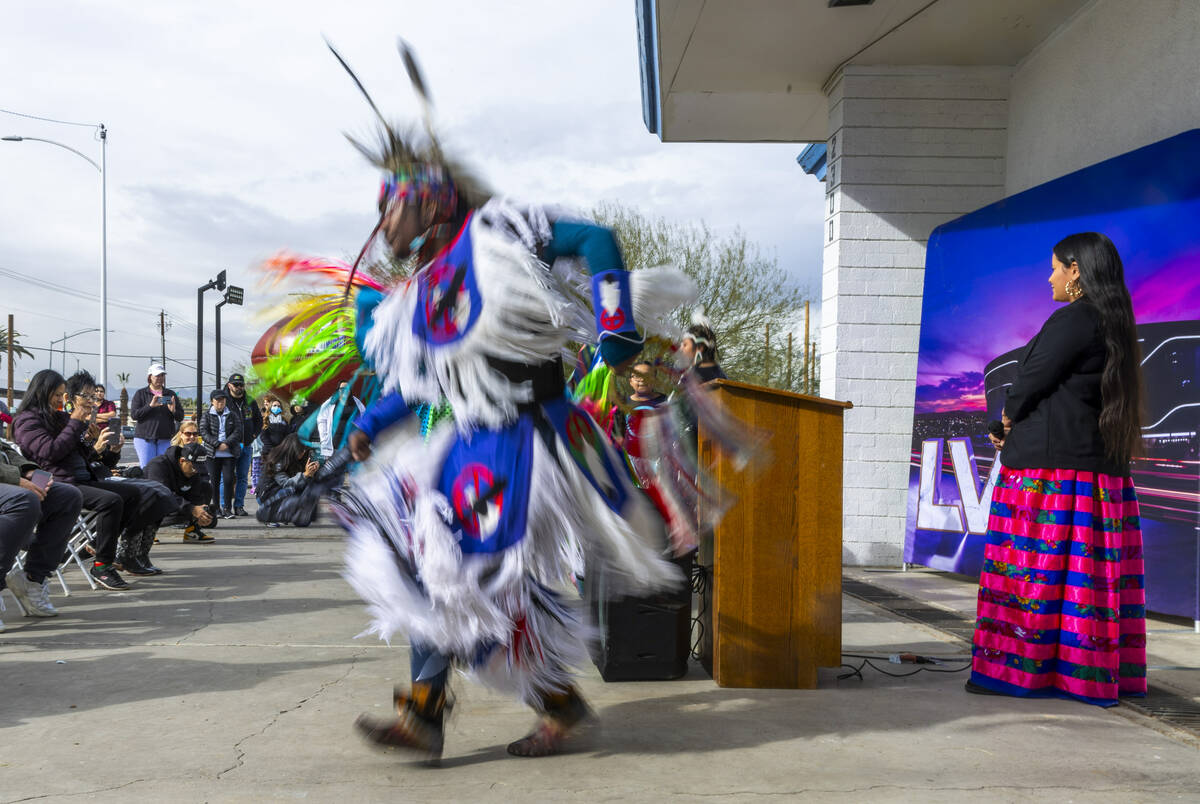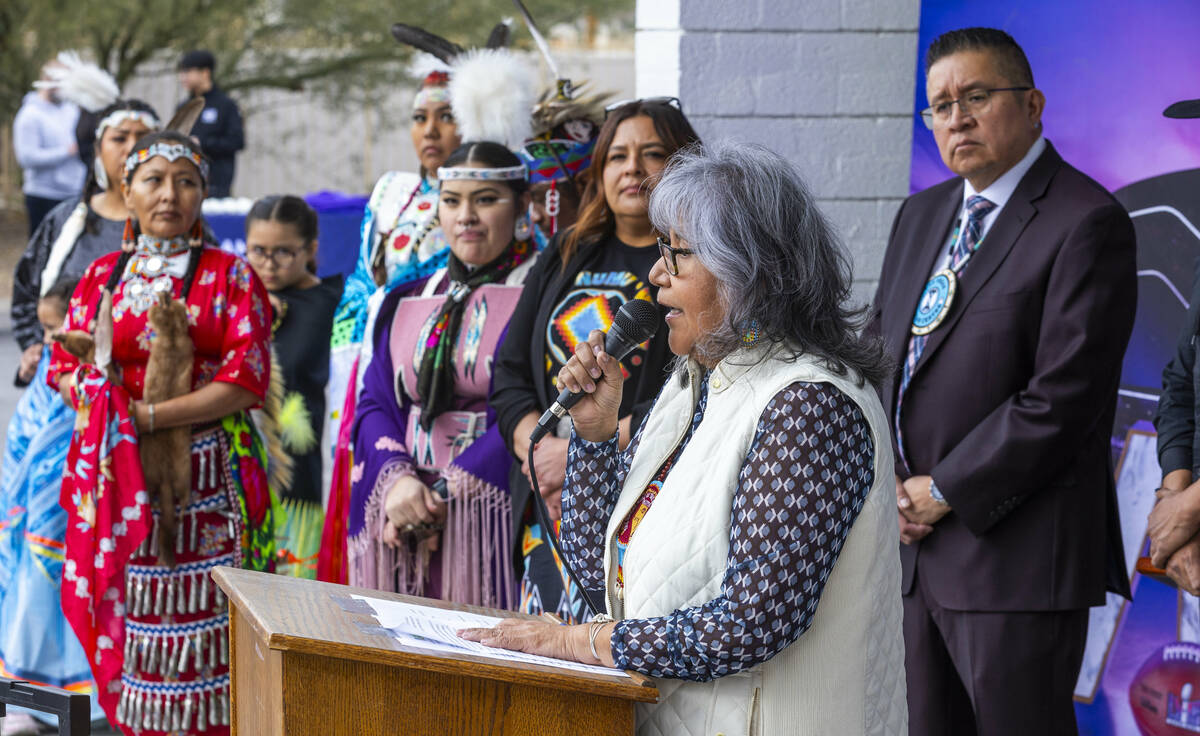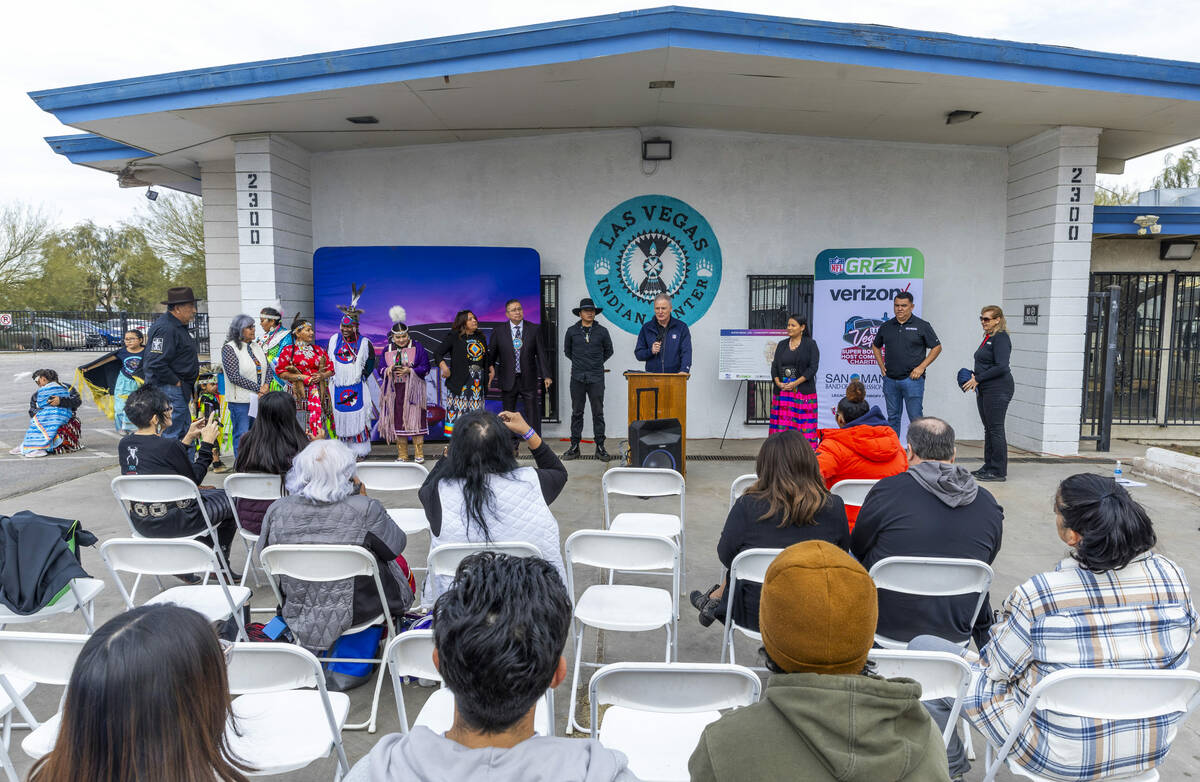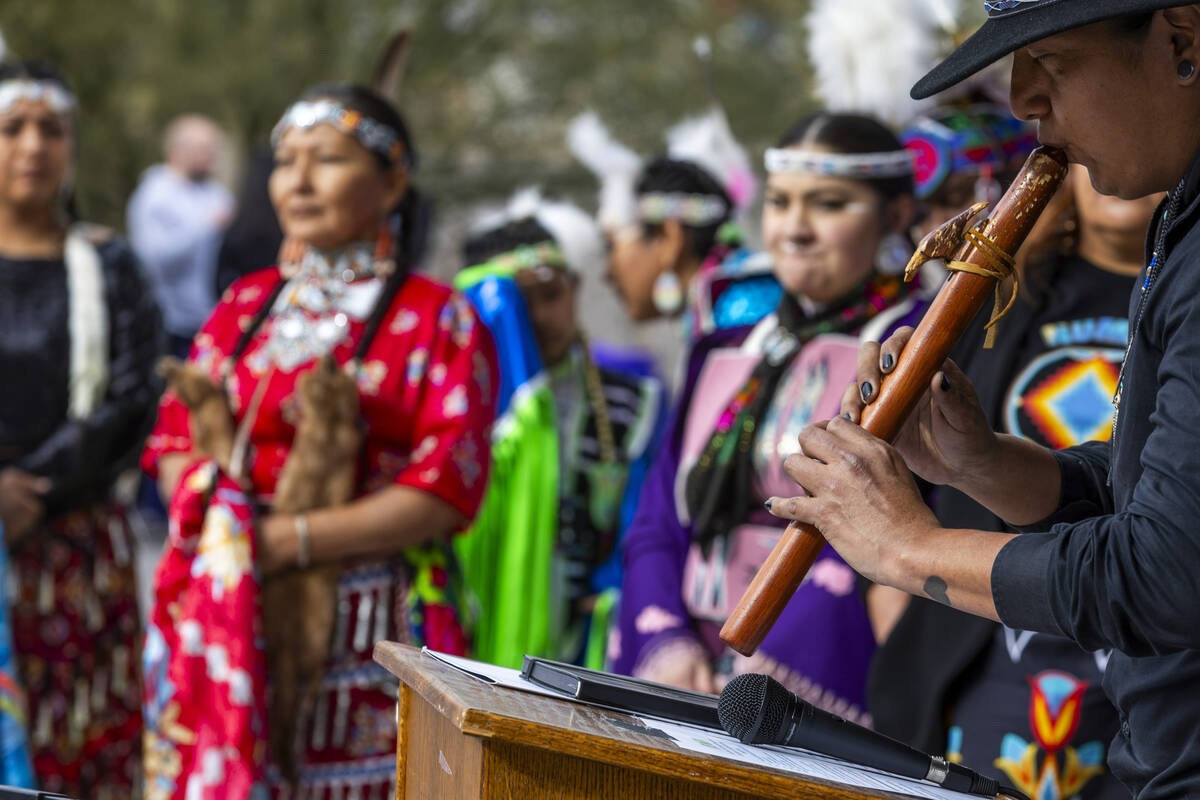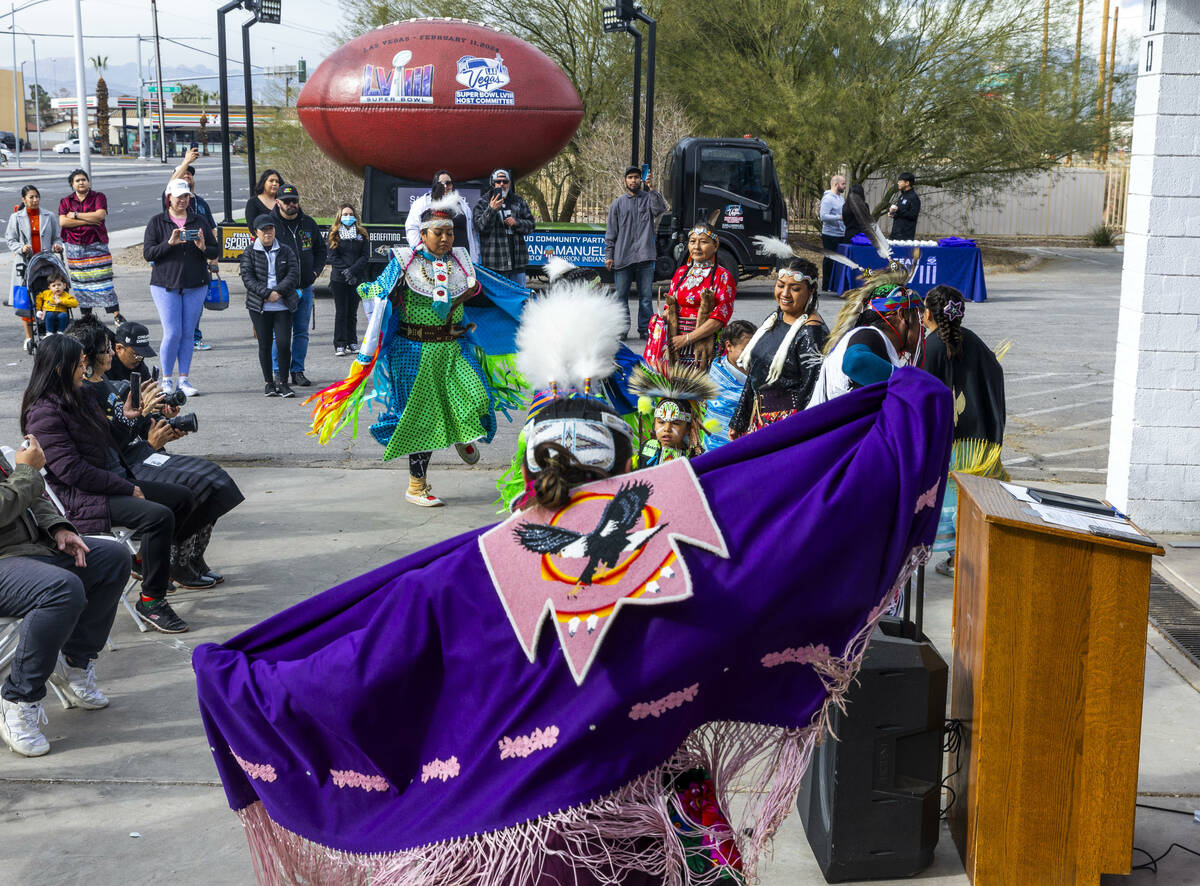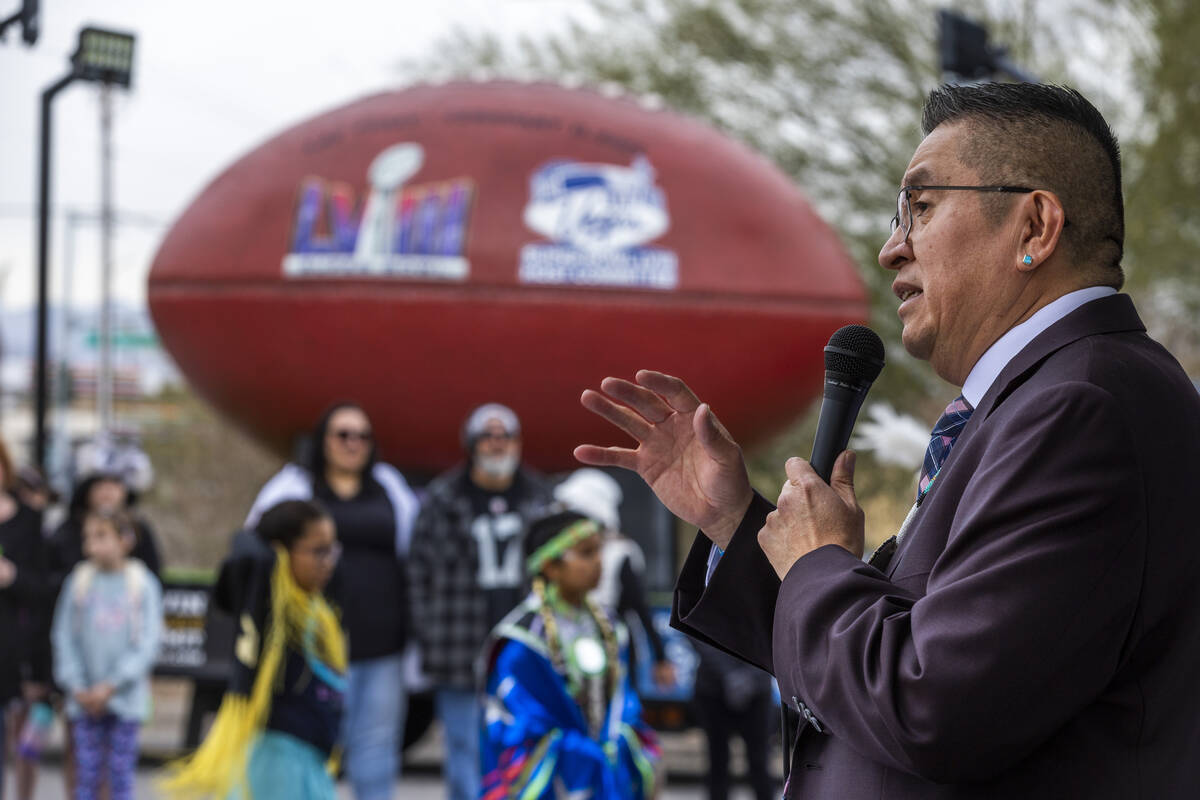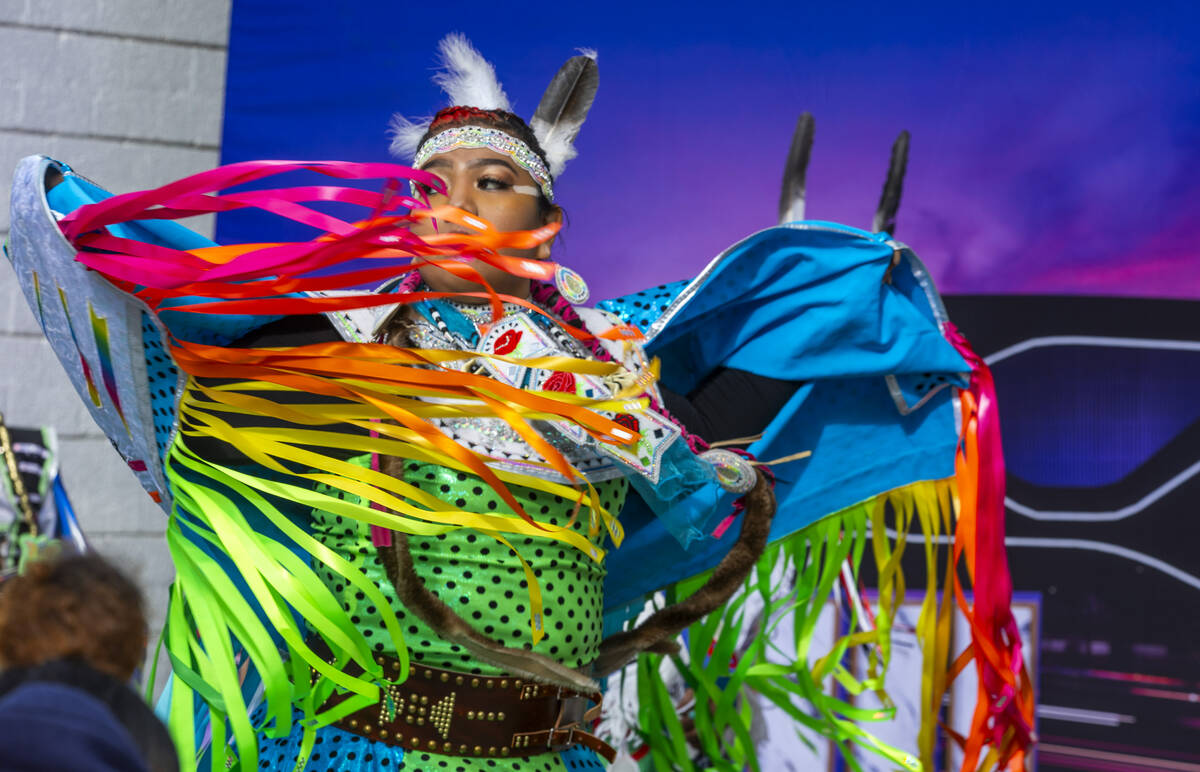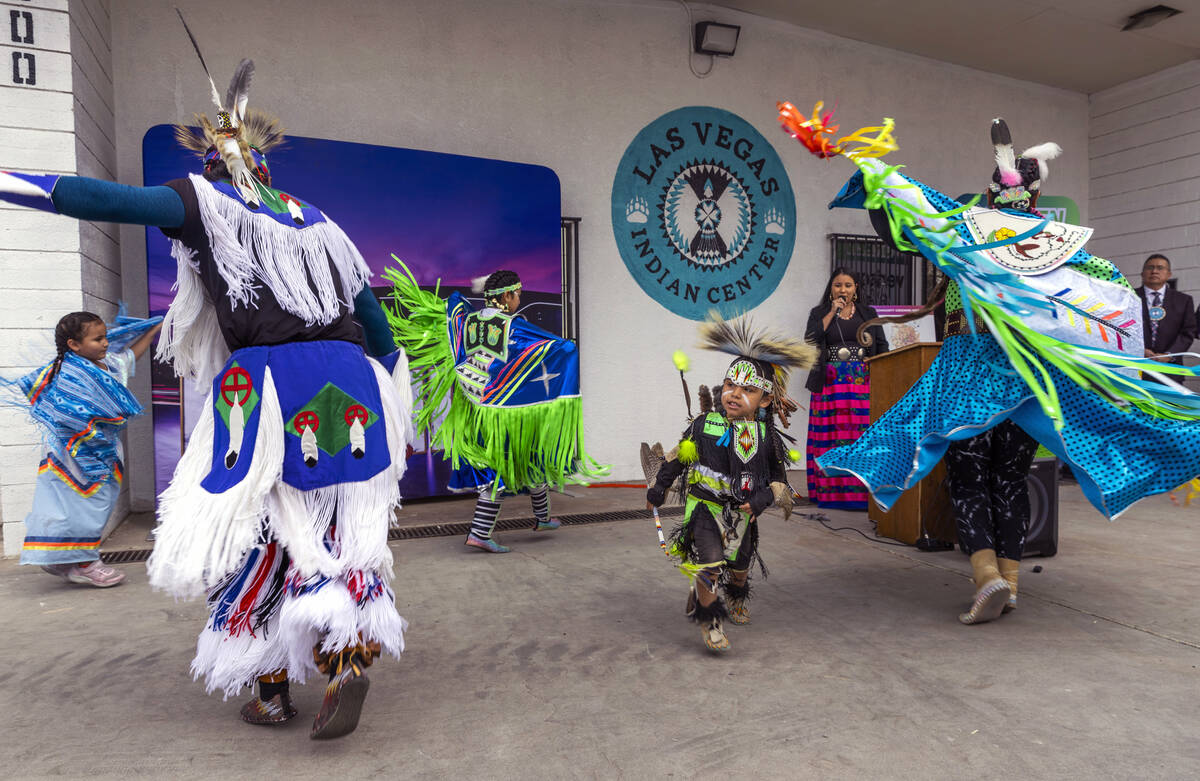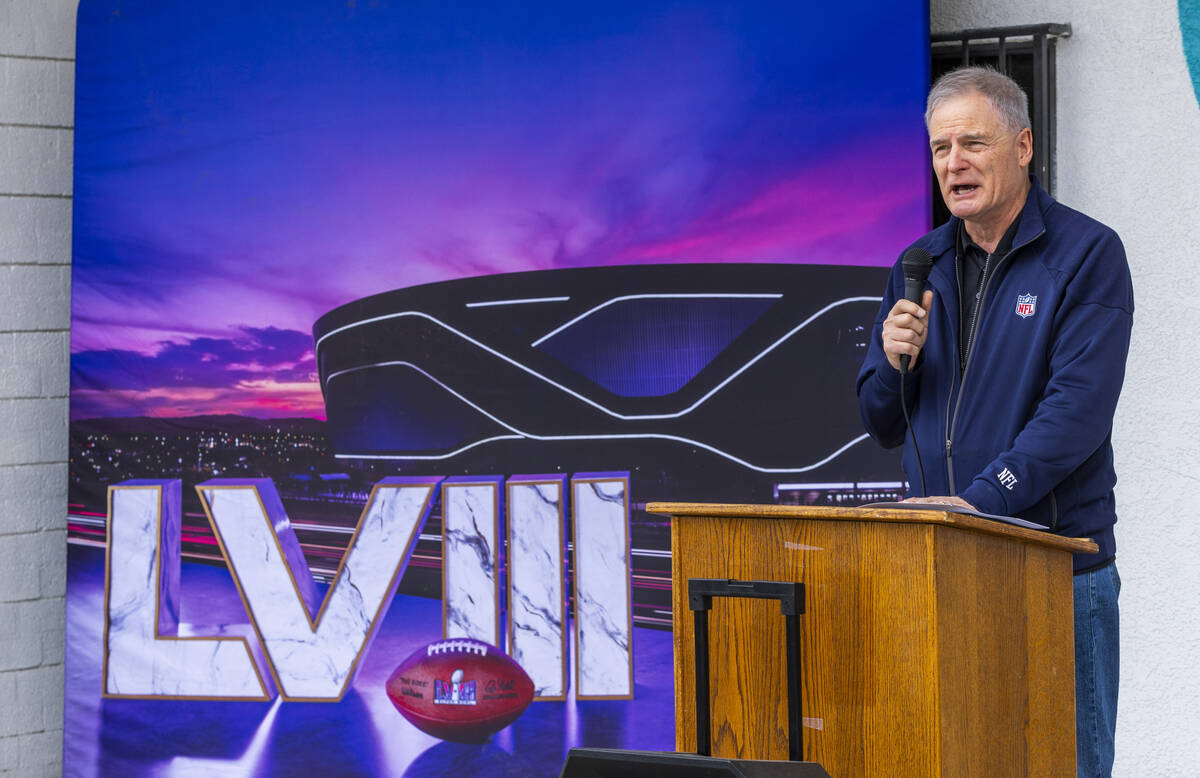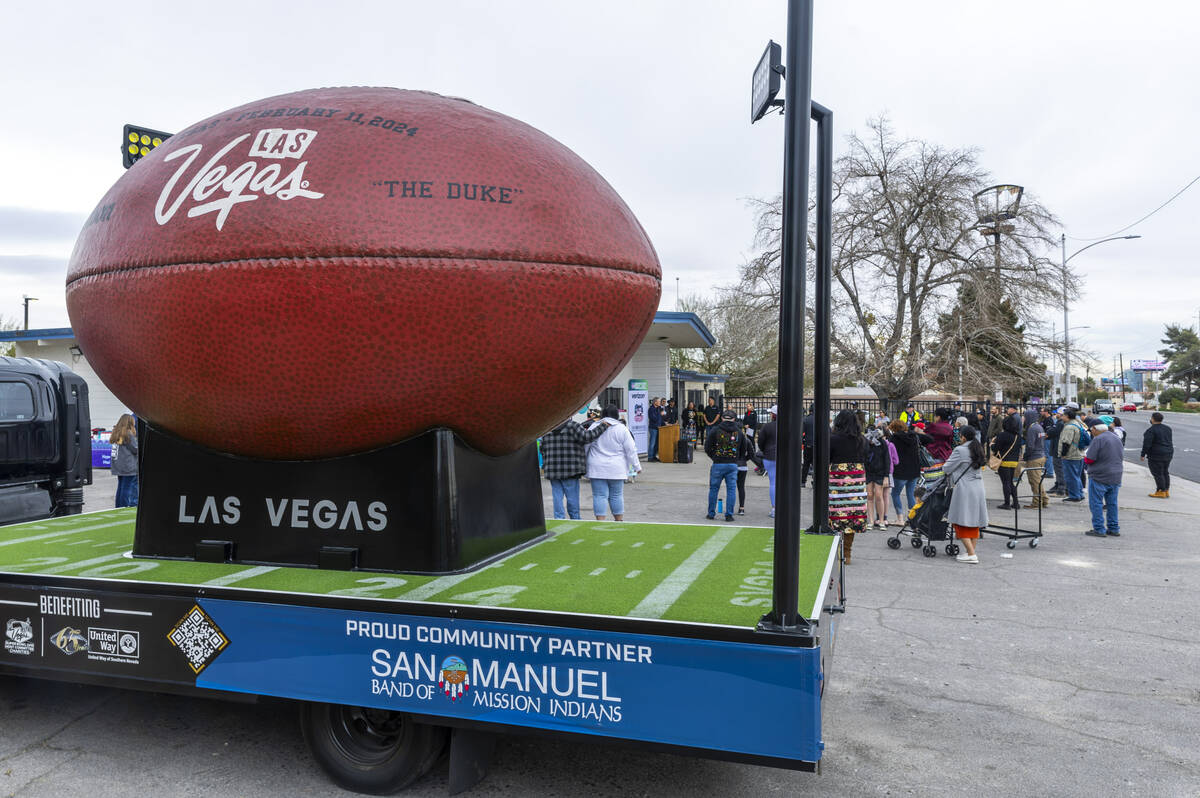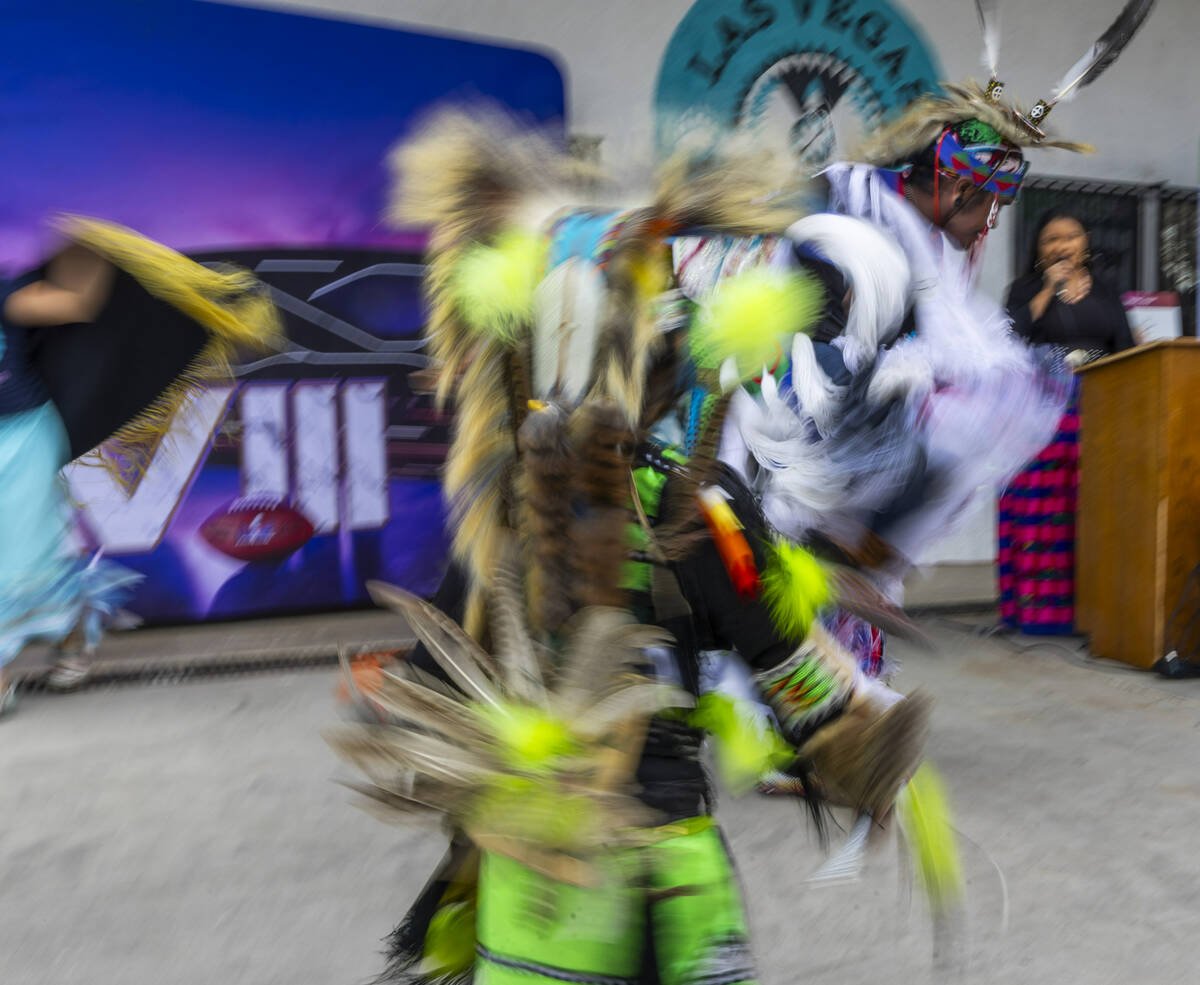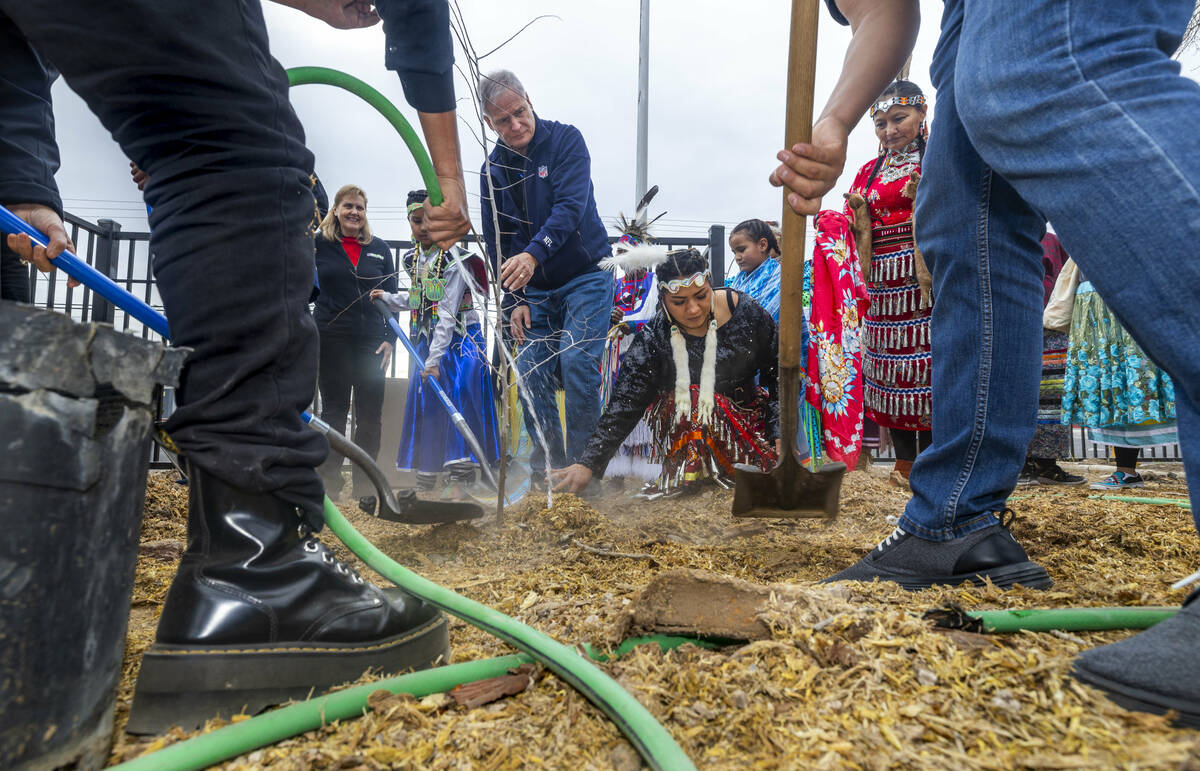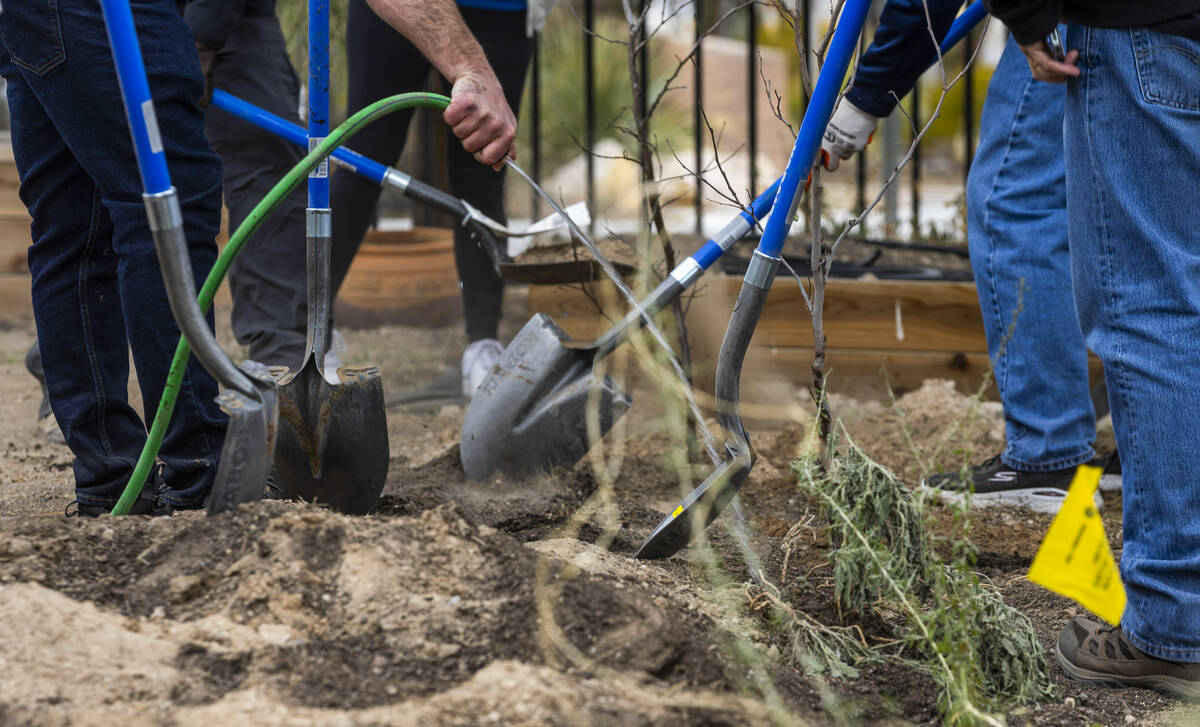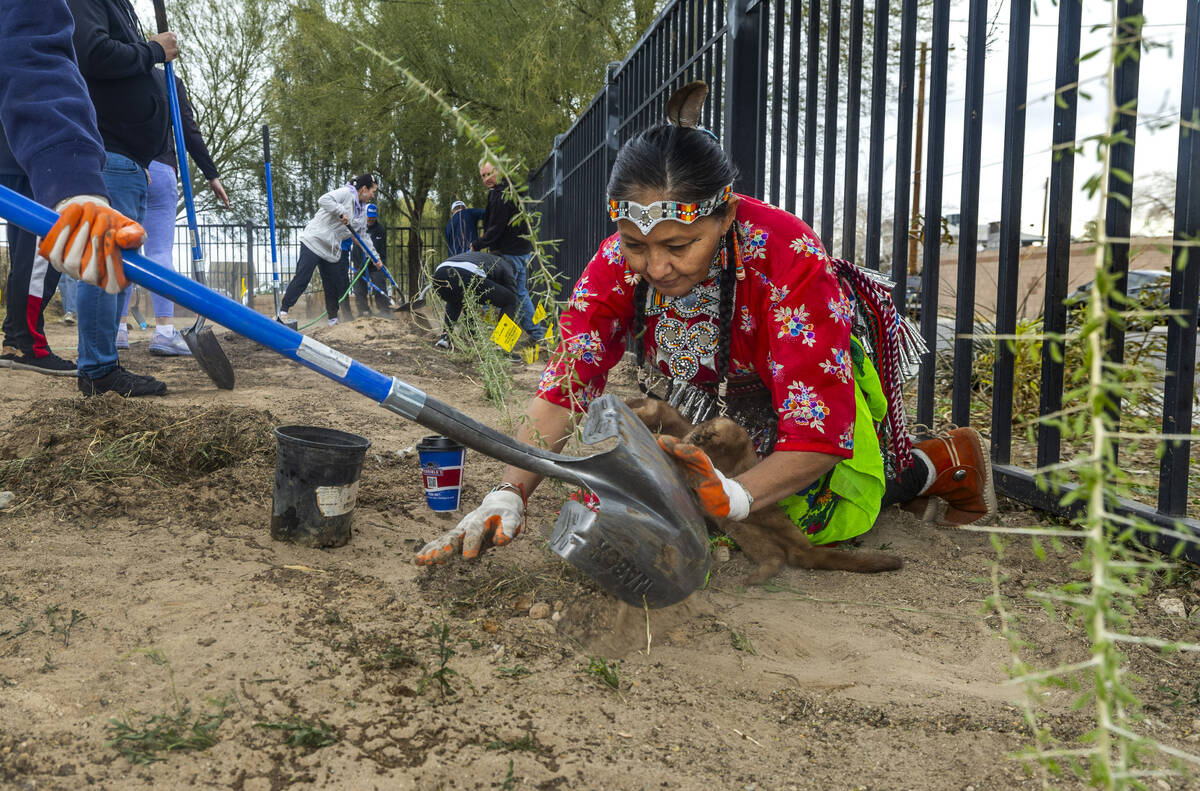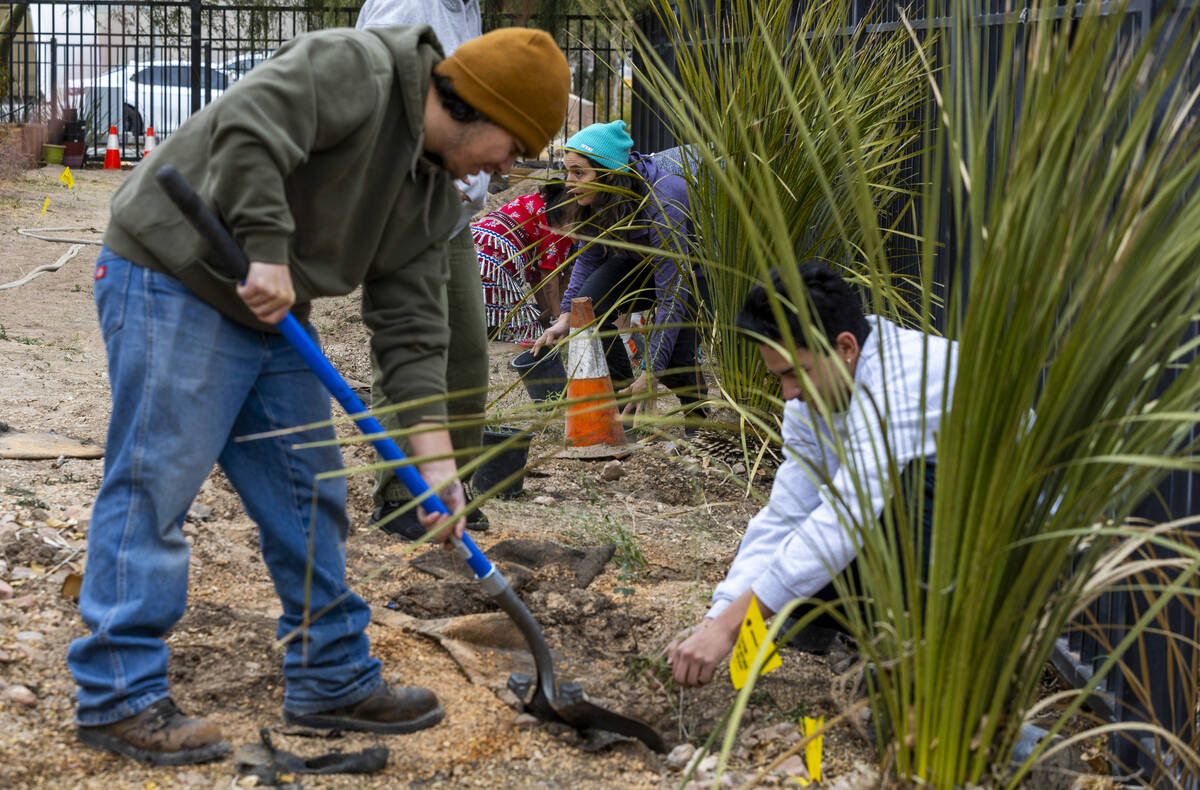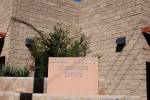Tree planting at Indian Center kicks off Super Bowl’s ‘Green Week’
Shovels dug into moist dirt and mulch in front of the Las Vegas Indian Center Saturday morning, kicking up dust as volunteers planted trees, bushes, shrubs and sage and spread native wildflower seeds.
The event kicked off the NFL’s Super Bowl 58 “Green Week,” a series of events that aim to leave a legacy in the form of vegetation the professional football league hopes will remain in Clark County long after the international spectacle moves on.
“The Super Bowl is the biggest event in the world for one day, but then it’s gone,” said Jack Groh, director of the NFL’s Environmental Program. “But the stuff that you guys do here today will last into the future — will last for our children and our grandchildren.”
“There’ll be trees, there’ll be plants,” he added. “The planet will be a little bit better because of everything that you do here today.”
Before planting, members of regional Western U.S. indigenous tribes performed various ceremonies that included prayer, singing and dance, including an inter-tribal number inclusive to the more than 500 tribes across the U.S.
Multigenerational “Jingle Dancers” gyrated their bodies to a healing dance, and tenor Bird Singers belted traditional chants to the sound of wooden maracas.
Rulon Pete, executive director of the Las Vegas Indian Center and member of the Cedar Band of Paiutes, said he felt grateful that the NFL included indigenous people in its projects.
“It’s important because it brings exposure to Native Americans throughout the United States, whether it’s on the ‘res’ or over here on the urban center,” he told the Las Vegas Review-Journal. “It’s a platform for us to say, ‘we’re still here.’”
Janet Myers, chair of the Moapa Band of Paiutes, led a land acknowledgement ceremony in which she highlighted the plight of her people and their ancestors, who lived in harmony for generations “before the onslaught of colonization,” she said.
“We seek to honor and respect the history and the traditional ecological knowledge of the original indigenous inhabitants that have preceded our occupation of these lands,” she said. “We acknowledge that this occupation was obtained through the creations of policy, system and structure — a policy designed to oppress, displace, assimilate and violently erase the indigenous people, their language and cultural heritage.”
Deserea Quintana, executive director of the Inter- Tribal Council of Nevada, underscored the native peoples’ profound connection with nature and the foes that threaten it: “climate change, pollution and encroachment on sacred sites.”
She added: “In the vast expanse of Nevada, our tribes view the land not merely as a resource but as a sacred entity — a living, breathing part of our identity. It is a sacred trust, a heritage to be cherished and protected.”
Jack Groh said the NFL had been looking forward to Saturday’s event, which he noted will be “hard to follow” after they pass on a “ceremonial golden shovel” to New Orleans, which will host the next Super Bowl.
Susan Groh, associate director of the NFL’s Environmental Program, described the occasion at the Indian Center as special, standing out among the hundreds of similar green projects the league has participated in.
“Not every project has a heart,” she said. “Every project is good, but this is one of those projects that has so much heart to it.”
Pete, a social services professional, spoke about historical atrocities inflicted on Native Americans, suffrage the Indian Center works to reverse.
The center provides affordable housing and civil engagement programs, and its community garden feeds the hungry, he said.
“It’s important because we’re still here,” he said. “We still face a lot of issues that plague or community, and at times, it becomes difficult for people to have resources available.”
When he heard about the NFL Green program he approached the Las Vegas Super Bowl Host Committee about choosing the center for the project.
“We’re thankful that we can be a part of it,” Pete said.
Contact Ricardo Torres-Cortez at rtorres@reviewjournal.com.



